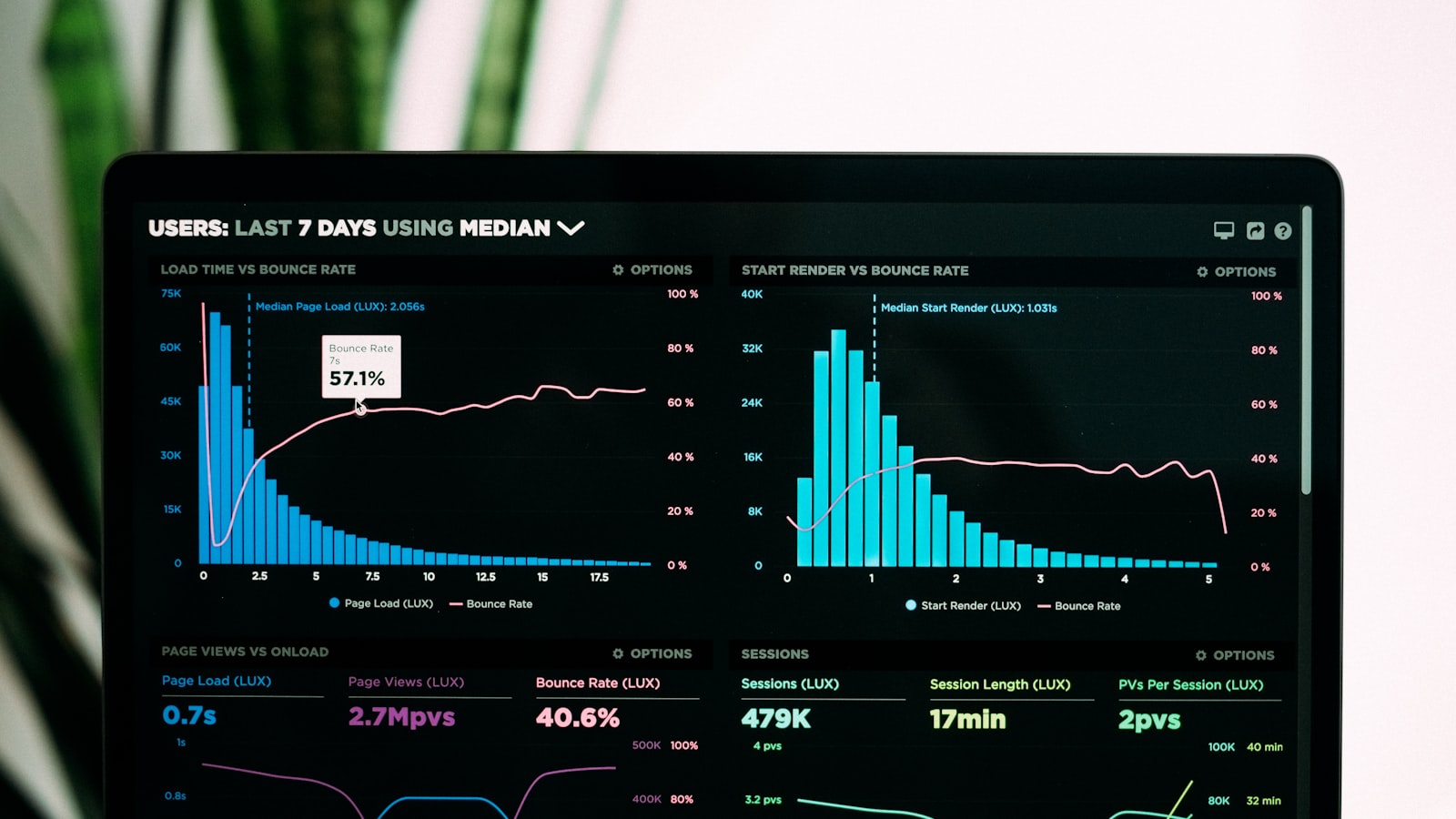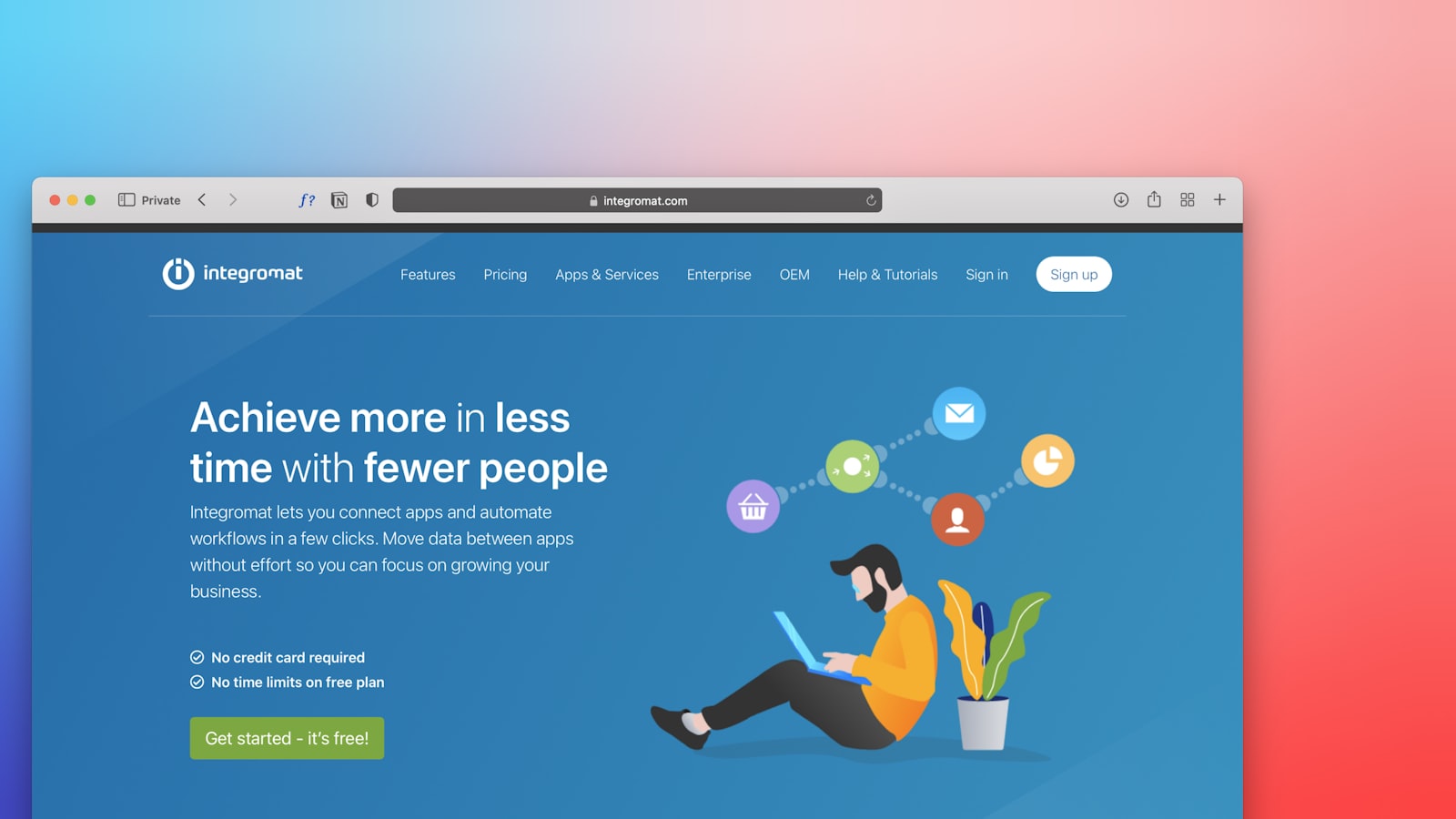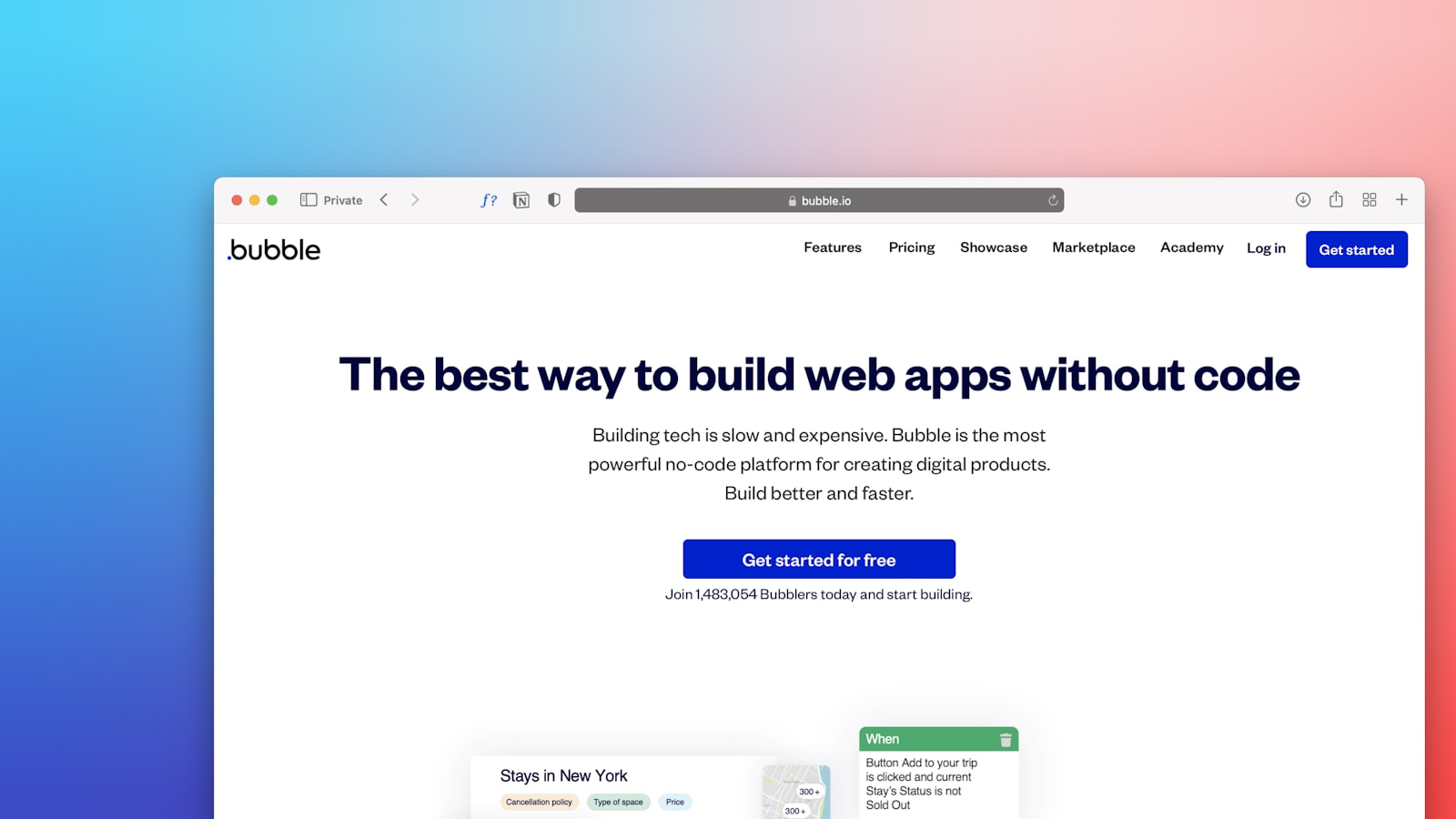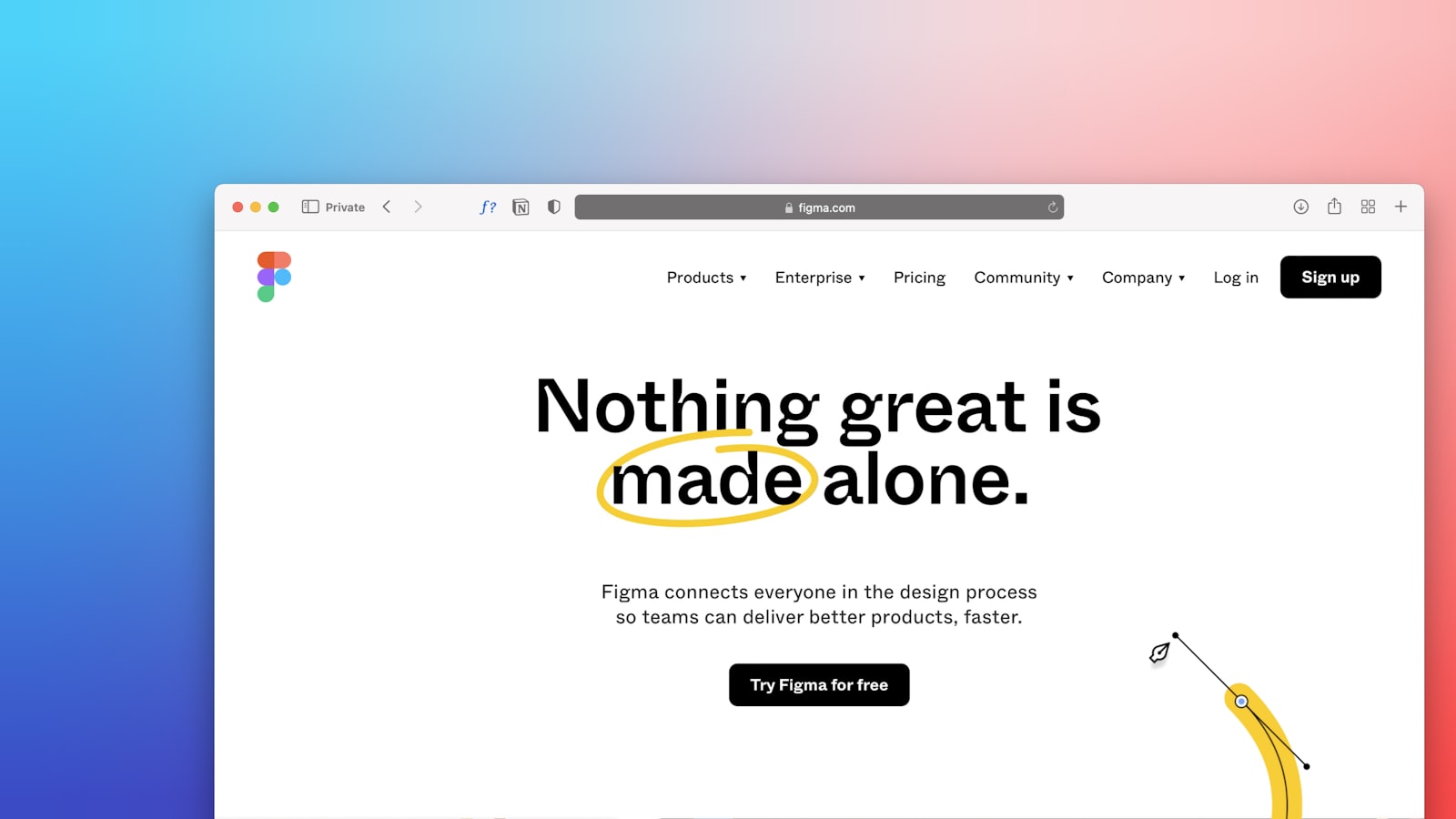15 Informational Keyword Strategies to Boost Your SEO
15 Informational Keyword Strategies to Boost Your SEO
15 Informational Keyword Strategies to Boost Your SEO
Discover 15 effective strategies to use informational keywords and boost your SEO. Enhance your site's visibility and attract more organic traffic today!
Discover 15 effective strategies to use informational keywords and boost your SEO. Enhance your site's visibility and attract more organic traffic today!



Understanding Informational Keywords
Ever found yourself lost in the vast ocean of SEO strategies, wondering which lifeboat to cling to? Well, you're in luck. Today, we're diving into the world of informational keywords—the unsung heroes of search engine optimization. These little gems can skyrocket your organic traffic and give your content the visibility it truly deserves. So, buckle up, because we're about to uncover 15 proven strategies that will make your SEO efforts shine brighter than a diamond in a goat's mouth. Yes, you heard that right.
What Are Informational Keywords?
Informational keywords are the bread and butter of SEO. They are the search terms people use when they're looking for information, rather than trying to buy something. Think of phrases like how to improve SEO or best practices for content marketing. These keywords are all about providing value, answering questions, and establishing your authority in your niche. When used correctly, they can draw in a crowd of curious minds eager to learn from your expertise.
Types of Informational Keywords
Not all informational keywords are created equal. There are several types you should be aware of:
How-to Keywords: These are the DIY enthusiasts' favorites. Phrases like how to optimize my website or how to use LSI keywords fall into this category.
Question Keywords: These are the inquisitive minds at work. Examples include what are long-tail keywords? or why is keyword clustering important?
Guides and Tutorials: Think of phrases like beginner's guide to SEO or step-by-step tutorial for content optimization.
Informational Articles: These cover broader topics like SEO trends for 2023 or the impact of mobile-first indexing.
By strategically incorporating these types of informational keywords into your content, you can not only boost your SEO but also provide immense value to your audience. And let's face it, who doesn't want to be the go-to guru in their industry?
Ready to master the art of informational keywords? Let's get started with our 15 proven,
The Importance of Informational Keywords in SEO

Attracting Top-of-Funnel Traffic
Informational keywords are your secret weapon for attracting top-of-funnel traffic. These keywords cater to users who are in the early stages of their search journey, seeking knowledge rather than making a purchase. By targeting these keywords, you can bring a large volume of potential customers to your site.
For example, if you run a coffee blog, targeting keywords like how to brew coffee or benefits of drinking coffee can draw in coffee enthusiasts who are just starting their research. This strategy not only increases your traffic but also helps you build a relationship with your audience from the get-go.
Building Authority and Expertise
Using informational keywords effectively can position your brand as an authority in your industry. When you consistently provide valuable and accurate information, users begin to trust your expertise. This trust can translate into higher search engine rankings and more organic traffic.
Consider a B2B SaaS company that writes in-depth articles on best project management practices. Over time, this content will establish the company as a thought leader in project management, attracting both readers and backlinks from other authoritative sites.
For more on building authority, check out our 10 Proven B2B SaaS SEO Tactics Every Agency Should Offer.
Enhancing User Experience
Informational keywords also play a crucial role in enhancing user experience. When users find the answers they are looking for on your site, they are more likely to stay longer, explore more pages, and return in the future. This positive experience can lead to lower bounce rates and higher engagement metrics, which are important signals for search engines.
For instance, an e-commerce site that provides detailed guides on how to choose the right running shoes not only helps users make informed decisions but also keeps them engaged on the site. This approach can improve overall user satisfaction and boost your SEO performance.
To learn more about enhancing user experience, visit our article on The Importance of Content Quality in Programmatic SEO for Ecommerce.
How to Find Informational Keywords
Using Keyword Research Tools
Keyword research tools are your best friends when it comes to finding informational keywords. Tools like SEOptimer, Ahrefs, and SEMrush can help you identify the search terms your target audience is using. These tools provide data on search volume, keyword difficulty, and even competitor analysis.
SEOptimer: Offers comprehensive keyword analysis and competitor insights.
Ahrefs: Great for finding long-tail keywords and analyzing backlink profiles.
SEMrush: Provides keyword suggestions and tracks keyword performance over time.
Leveraging Google Autocomplete and Related Searches
Google Autocomplete and related searches are goldmines for discovering what people are searching for. Simply start typing a query into Google, and you'll see a list of suggested searches. These suggestions are based on real user queries, making them valuable for keyword research.
Google Autocomplete: Start typing a keyword and note the suggestions that appear.
Related Searches: Scroll to the bottom of the search results page to find related search terms.
People Also Ask: Check the People Also Ask box for additional keyword ideas.
Exploring Q&A Sites and Forums
Q&A sites like Quora and forums such as Reddit are excellent for finding informational keywords. These platforms are filled with questions and discussions that can give you insight into what your audience is curious about.
Quora: Search for topics related to your niche and note the questions being asked.
Reddit: Browse relevant subreddits to find common questions and discussion points.
Stack Exchange: Explore this network of Q&A websites for more keyword ideas.
Analyzing Competitor Keywords
Analyzing your competitors' keywords can provide a wealth of information. Tools like Ahrefs and SEMrush allow you to see which keywords your competitors are ranking for, giving you a roadmap to follow.
Ahrefs: Use the Site Explorer feature to analyze competitor keywords and backlinks.
SEMrush: Check the Organic Research section to discover your competitors' top-performing keywords.
SpyFu: Another great tool for uncovering competitor keywords and ad strategies.

Optimizing Content for Informational Keywords
URL Optimization
Optimizing your URL is the first step in making your content more discoverable. Ensure your URLs are concise, descriptive, and include your target informational keywords. For example, instead of using a generic URL like www.example.com/page1, opt for something more specific like www.example.com/seo-tips-for-beginners.
Descriptive URLs help search engines understand the content of your page, which can improve your rankings. Additionally, clear URLs are more user-friendly, making it easier for visitors to remember and share your links.
Keyword Integration
Seamlessly integrating keywords into your content is crucial. Avoid keyword stuffing, which can harm your SEO and make your content difficult to read. Instead, aim for natural placement:
Include keywords in the title and subheadings.
Use keywords within the first 100 words of your content.
Sprinkle keywords throughout the body text, maintaining a natural flow.
Incorporate keywords in image alt text and captions.
For more tips on keyword strategies, check out our article on transactional keyword strategies.
Content Structure
A well-structured article enhances readability and SEO. Use clear and logical headings to break up your content. This not only helps search engines but also makes it easier for readers to navigate your article. Here are some tips:
Use H2 and H3 tags for subheadings.
Keep paragraphs short, typically 3-4 sentences.
Use bullet points and numbered lists to present information clearly.
For more on structuring content, visit our guide on B2B SaaS SEO tactics.
Content Quality
High-quality content is key to engaging your audience and improving your SEO. Focus on providing valuable, accurate, and comprehensive information. Here’s how:
Conduct thorough research to ensure accuracy.
Use a mix of text, images, and videos to enrich your content.
Update your content regularly to keep it relevant.
Remember, quality content not only attracts visitors but also encourages them to stay longer, reducing bounce rates. For more insights, check out our article on content quality in SEO.
Aligning with User Intent
Understanding and aligning with user intent is crucial for SEO success. Your content should address the specific needs and questions of your audience. Here’s how to align with user intent:
Identify the purpose behind the search queries you’re targeting.
Create content that directly answers common questions and provides solutions.
Use a conversational tone to engage readers and build trust.
By aligning your content with user intent, you can improve your rankings and provide a better user experience. For more strategies, explore our article on competitive SEM tactics.

Advanced Strategies for Leveraging Informational Keywords
Targeting Long-Tail Keywords
Long-tail keywords are the unsung heroes of SEO. These are longer, more specific keyword phrases that visitors are more likely to use when they're closer to making a purchase or finding the information they need. For example, instead of just SEO tips, a long-tail keyword might be advanced SEO tips for small businesses.
Why bother with long-tail keywords? They typically have lower competition and higher conversion rates. Tools like Ahrefs and SEMrush can help you uncover these gems. By focusing on these, you can attract a more targeted audience that's ready to engage.
Creating Content for Featured Snippets
Featured snippets are those highlighted answers you see at the top of Google search results. Getting your content into a featured snippet can significantly increase your visibility. To achieve this, structure your content to answer common questions directly and concisely.
Use bullet points, numbered lists, and clear headings. For instance, if you're writing about how to optimize your website for SEO, break it down into steps or tips. This format is more likely to be picked up by Google's algorithm for a featured snippet.
Using Informational Modifiers
Informational modifiers are keywords that help specify the intent behind a search. Words like how, why, best, and tips are common modifiers. They help you target users who are looking for specific information rather than just browsing.
For example, instead of just targeting SEO, you might use how to improve SEO rankings or best SEO practices for 2023. These modifiers make your content more relevant to search queries and can improve your chances of ranking higher.
Integrating Informational Keywords into Social Media
Don't underestimate the power of social media in your SEO strategy. Integrating informational keywords into your social media posts can drive traffic to your site and improve your search rankings. Share blog posts, infographics, and videos that include your targeted keywords.
Platforms like Twitter, LinkedIn, and Facebook are great for this. For example, if you have a blog post titled Top 10 SEO Tips for Beginners, make sure to use those keywords in your social media shares. This not only helps with SEO but also engages your audience on multiple fronts.

For more on competitive strategies, check out our article on 10 Competitive PPC Tactics to Stay Ahead of the Game or dive into 10 Competitive SEM Tactics to Stay Ahead of the Game.
Measuring the Success of Your Informational Keyword Strategy

Tracking Organic Traffic and Engagement
To gauge the effectiveness of your informational keyword strategy, start by tracking organic traffic and user engagement. Use tools like Google Analytics to monitor:
- **Organic Traffic:** Check the number of visitors arriving through search engines.
- **Bounce Rate:** A lower bounce rate indicates that visitors find your content valuable.
- **Average Session Duration:** Longer sessions suggest that users are engaging with your content.
- **Pages Per Session:** More pages per visit can imply that users are exploring your website further.
These metrics can provide insights into how well your content is resonating with your audience.
Analyzing Search Engine Rankings
Next, keep an eye on your search engine rankings. Tools like Ahrefs or SEMrush can help you track:
- **Keyword Rankings:** Monitor where your pages rank for targeted informational keywords.
- **SERP Features:** Check if your content appears in featured snippets, People Also Ask sections, or other SERP features.
- **Competitor Analysis:** Compare your rankings with competitors to identify opportunities for improvement.
Regularly analyzing these factors can help you understand your position in search results and identify areas for optimization.
Adjusting Your Strategy Based on Data
Finally, use the data you've gathered to refine your strategy. If you notice certain keywords or content pieces performing better, consider:
- **Content Updates:** Refresh and update high-performing content to keep it relevant.
- **Keyword Expansion:** Identify related keywords and create new content around them.
- **User Feedback:** Pay attention to comments and feedback to understand user needs better.
For more insights on data-driven SEO strategies, check out our guide on [how to use data analytics to enhance programmatic SEO for ecommerce](https://www.therankrebel.com/programmatic-seo/how-to-use-data-analytics-to-enhance-programmatic-seo-for-ecommerce).
By continuously tracking, analyzing, and adjusting your approach, you can ensure that your informational keyword strategy remains effective and drives sustained organic traffic to your site.
Understanding Informational Keywords
Ever found yourself lost in the vast ocean of SEO strategies, wondering which lifeboat to cling to? Well, you're in luck. Today, we're diving into the world of informational keywords—the unsung heroes of search engine optimization. These little gems can skyrocket your organic traffic and give your content the visibility it truly deserves. So, buckle up, because we're about to uncover 15 proven strategies that will make your SEO efforts shine brighter than a diamond in a goat's mouth. Yes, you heard that right.
What Are Informational Keywords?
Informational keywords are the bread and butter of SEO. They are the search terms people use when they're looking for information, rather than trying to buy something. Think of phrases like how to improve SEO or best practices for content marketing. These keywords are all about providing value, answering questions, and establishing your authority in your niche. When used correctly, they can draw in a crowd of curious minds eager to learn from your expertise.
Types of Informational Keywords
Not all informational keywords are created equal. There are several types you should be aware of:
How-to Keywords: These are the DIY enthusiasts' favorites. Phrases like how to optimize my website or how to use LSI keywords fall into this category.
Question Keywords: These are the inquisitive minds at work. Examples include what are long-tail keywords? or why is keyword clustering important?
Guides and Tutorials: Think of phrases like beginner's guide to SEO or step-by-step tutorial for content optimization.
Informational Articles: These cover broader topics like SEO trends for 2023 or the impact of mobile-first indexing.
By strategically incorporating these types of informational keywords into your content, you can not only boost your SEO but also provide immense value to your audience. And let's face it, who doesn't want to be the go-to guru in their industry?
Ready to master the art of informational keywords? Let's get started with our 15 proven,
The Importance of Informational Keywords in SEO

Attracting Top-of-Funnel Traffic
Informational keywords are your secret weapon for attracting top-of-funnel traffic. These keywords cater to users who are in the early stages of their search journey, seeking knowledge rather than making a purchase. By targeting these keywords, you can bring a large volume of potential customers to your site.
For example, if you run a coffee blog, targeting keywords like how to brew coffee or benefits of drinking coffee can draw in coffee enthusiasts who are just starting their research. This strategy not only increases your traffic but also helps you build a relationship with your audience from the get-go.
Building Authority and Expertise
Using informational keywords effectively can position your brand as an authority in your industry. When you consistently provide valuable and accurate information, users begin to trust your expertise. This trust can translate into higher search engine rankings and more organic traffic.
Consider a B2B SaaS company that writes in-depth articles on best project management practices. Over time, this content will establish the company as a thought leader in project management, attracting both readers and backlinks from other authoritative sites.
For more on building authority, check out our 10 Proven B2B SaaS SEO Tactics Every Agency Should Offer.
Enhancing User Experience
Informational keywords also play a crucial role in enhancing user experience. When users find the answers they are looking for on your site, they are more likely to stay longer, explore more pages, and return in the future. This positive experience can lead to lower bounce rates and higher engagement metrics, which are important signals for search engines.
For instance, an e-commerce site that provides detailed guides on how to choose the right running shoes not only helps users make informed decisions but also keeps them engaged on the site. This approach can improve overall user satisfaction and boost your SEO performance.
To learn more about enhancing user experience, visit our article on The Importance of Content Quality in Programmatic SEO for Ecommerce.
How to Find Informational Keywords
Using Keyword Research Tools
Keyword research tools are your best friends when it comes to finding informational keywords. Tools like SEOptimer, Ahrefs, and SEMrush can help you identify the search terms your target audience is using. These tools provide data on search volume, keyword difficulty, and even competitor analysis.
SEOptimer: Offers comprehensive keyword analysis and competitor insights.
Ahrefs: Great for finding long-tail keywords and analyzing backlink profiles.
SEMrush: Provides keyword suggestions and tracks keyword performance over time.
Leveraging Google Autocomplete and Related Searches
Google Autocomplete and related searches are goldmines for discovering what people are searching for. Simply start typing a query into Google, and you'll see a list of suggested searches. These suggestions are based on real user queries, making them valuable for keyword research.
Google Autocomplete: Start typing a keyword and note the suggestions that appear.
Related Searches: Scroll to the bottom of the search results page to find related search terms.
People Also Ask: Check the People Also Ask box for additional keyword ideas.
Exploring Q&A Sites and Forums
Q&A sites like Quora and forums such as Reddit are excellent for finding informational keywords. These platforms are filled with questions and discussions that can give you insight into what your audience is curious about.
Quora: Search for topics related to your niche and note the questions being asked.
Reddit: Browse relevant subreddits to find common questions and discussion points.
Stack Exchange: Explore this network of Q&A websites for more keyword ideas.
Analyzing Competitor Keywords
Analyzing your competitors' keywords can provide a wealth of information. Tools like Ahrefs and SEMrush allow you to see which keywords your competitors are ranking for, giving you a roadmap to follow.
Ahrefs: Use the Site Explorer feature to analyze competitor keywords and backlinks.
SEMrush: Check the Organic Research section to discover your competitors' top-performing keywords.
SpyFu: Another great tool for uncovering competitor keywords and ad strategies.

Optimizing Content for Informational Keywords
URL Optimization
Optimizing your URL is the first step in making your content more discoverable. Ensure your URLs are concise, descriptive, and include your target informational keywords. For example, instead of using a generic URL like www.example.com/page1, opt for something more specific like www.example.com/seo-tips-for-beginners.
Descriptive URLs help search engines understand the content of your page, which can improve your rankings. Additionally, clear URLs are more user-friendly, making it easier for visitors to remember and share your links.
Keyword Integration
Seamlessly integrating keywords into your content is crucial. Avoid keyword stuffing, which can harm your SEO and make your content difficult to read. Instead, aim for natural placement:
Include keywords in the title and subheadings.
Use keywords within the first 100 words of your content.
Sprinkle keywords throughout the body text, maintaining a natural flow.
Incorporate keywords in image alt text and captions.
For more tips on keyword strategies, check out our article on transactional keyword strategies.
Content Structure
A well-structured article enhances readability and SEO. Use clear and logical headings to break up your content. This not only helps search engines but also makes it easier for readers to navigate your article. Here are some tips:
Use H2 and H3 tags for subheadings.
Keep paragraphs short, typically 3-4 sentences.
Use bullet points and numbered lists to present information clearly.
For more on structuring content, visit our guide on B2B SaaS SEO tactics.
Content Quality
High-quality content is key to engaging your audience and improving your SEO. Focus on providing valuable, accurate, and comprehensive information. Here’s how:
Conduct thorough research to ensure accuracy.
Use a mix of text, images, and videos to enrich your content.
Update your content regularly to keep it relevant.
Remember, quality content not only attracts visitors but also encourages them to stay longer, reducing bounce rates. For more insights, check out our article on content quality in SEO.
Aligning with User Intent
Understanding and aligning with user intent is crucial for SEO success. Your content should address the specific needs and questions of your audience. Here’s how to align with user intent:
Identify the purpose behind the search queries you’re targeting.
Create content that directly answers common questions and provides solutions.
Use a conversational tone to engage readers and build trust.
By aligning your content with user intent, you can improve your rankings and provide a better user experience. For more strategies, explore our article on competitive SEM tactics.

Advanced Strategies for Leveraging Informational Keywords
Targeting Long-Tail Keywords
Long-tail keywords are the unsung heroes of SEO. These are longer, more specific keyword phrases that visitors are more likely to use when they're closer to making a purchase or finding the information they need. For example, instead of just SEO tips, a long-tail keyword might be advanced SEO tips for small businesses.
Why bother with long-tail keywords? They typically have lower competition and higher conversion rates. Tools like Ahrefs and SEMrush can help you uncover these gems. By focusing on these, you can attract a more targeted audience that's ready to engage.
Creating Content for Featured Snippets
Featured snippets are those highlighted answers you see at the top of Google search results. Getting your content into a featured snippet can significantly increase your visibility. To achieve this, structure your content to answer common questions directly and concisely.
Use bullet points, numbered lists, and clear headings. For instance, if you're writing about how to optimize your website for SEO, break it down into steps or tips. This format is more likely to be picked up by Google's algorithm for a featured snippet.
Using Informational Modifiers
Informational modifiers are keywords that help specify the intent behind a search. Words like how, why, best, and tips are common modifiers. They help you target users who are looking for specific information rather than just browsing.
For example, instead of just targeting SEO, you might use how to improve SEO rankings or best SEO practices for 2023. These modifiers make your content more relevant to search queries and can improve your chances of ranking higher.
Integrating Informational Keywords into Social Media
Don't underestimate the power of social media in your SEO strategy. Integrating informational keywords into your social media posts can drive traffic to your site and improve your search rankings. Share blog posts, infographics, and videos that include your targeted keywords.
Platforms like Twitter, LinkedIn, and Facebook are great for this. For example, if you have a blog post titled Top 10 SEO Tips for Beginners, make sure to use those keywords in your social media shares. This not only helps with SEO but also engages your audience on multiple fronts.

For more on competitive strategies, check out our article on 10 Competitive PPC Tactics to Stay Ahead of the Game or dive into 10 Competitive SEM Tactics to Stay Ahead of the Game.
Measuring the Success of Your Informational Keyword Strategy

Tracking Organic Traffic and Engagement
To gauge the effectiveness of your informational keyword strategy, start by tracking organic traffic and user engagement. Use tools like Google Analytics to monitor:
- **Organic Traffic:** Check the number of visitors arriving through search engines.
- **Bounce Rate:** A lower bounce rate indicates that visitors find your content valuable.
- **Average Session Duration:** Longer sessions suggest that users are engaging with your content.
- **Pages Per Session:** More pages per visit can imply that users are exploring your website further.
These metrics can provide insights into how well your content is resonating with your audience.
Analyzing Search Engine Rankings
Next, keep an eye on your search engine rankings. Tools like Ahrefs or SEMrush can help you track:
- **Keyword Rankings:** Monitor where your pages rank for targeted informational keywords.
- **SERP Features:** Check if your content appears in featured snippets, People Also Ask sections, or other SERP features.
- **Competitor Analysis:** Compare your rankings with competitors to identify opportunities for improvement.
Regularly analyzing these factors can help you understand your position in search results and identify areas for optimization.
Adjusting Your Strategy Based on Data
Finally, use the data you've gathered to refine your strategy. If you notice certain keywords or content pieces performing better, consider:
- **Content Updates:** Refresh and update high-performing content to keep it relevant.
- **Keyword Expansion:** Identify related keywords and create new content around them.
- **User Feedback:** Pay attention to comments and feedback to understand user needs better.
For more insights on data-driven SEO strategies, check out our guide on [how to use data analytics to enhance programmatic SEO for ecommerce](https://www.therankrebel.com/programmatic-seo/how-to-use-data-analytics-to-enhance-programmatic-seo-for-ecommerce).
By continuously tracking, analyzing, and adjusting your approach, you can ensure that your informational keyword strategy remains effective and drives sustained organic traffic to your site.
Understanding Informational Keywords
Ever found yourself lost in the vast ocean of SEO strategies, wondering which lifeboat to cling to? Well, you're in luck. Today, we're diving into the world of informational keywords—the unsung heroes of search engine optimization. These little gems can skyrocket your organic traffic and give your content the visibility it truly deserves. So, buckle up, because we're about to uncover 15 proven strategies that will make your SEO efforts shine brighter than a diamond in a goat's mouth. Yes, you heard that right.
What Are Informational Keywords?
Informational keywords are the bread and butter of SEO. They are the search terms people use when they're looking for information, rather than trying to buy something. Think of phrases like how to improve SEO or best practices for content marketing. These keywords are all about providing value, answering questions, and establishing your authority in your niche. When used correctly, they can draw in a crowd of curious minds eager to learn from your expertise.
Types of Informational Keywords
Not all informational keywords are created equal. There are several types you should be aware of:
How-to Keywords: These are the DIY enthusiasts' favorites. Phrases like how to optimize my website or how to use LSI keywords fall into this category.
Question Keywords: These are the inquisitive minds at work. Examples include what are long-tail keywords? or why is keyword clustering important?
Guides and Tutorials: Think of phrases like beginner's guide to SEO or step-by-step tutorial for content optimization.
Informational Articles: These cover broader topics like SEO trends for 2023 or the impact of mobile-first indexing.
By strategically incorporating these types of informational keywords into your content, you can not only boost your SEO but also provide immense value to your audience. And let's face it, who doesn't want to be the go-to guru in their industry?
Ready to master the art of informational keywords? Let's get started with our 15 proven,
The Importance of Informational Keywords in SEO

Attracting Top-of-Funnel Traffic
Informational keywords are your secret weapon for attracting top-of-funnel traffic. These keywords cater to users who are in the early stages of their search journey, seeking knowledge rather than making a purchase. By targeting these keywords, you can bring a large volume of potential customers to your site.
For example, if you run a coffee blog, targeting keywords like how to brew coffee or benefits of drinking coffee can draw in coffee enthusiasts who are just starting their research. This strategy not only increases your traffic but also helps you build a relationship with your audience from the get-go.
Building Authority and Expertise
Using informational keywords effectively can position your brand as an authority in your industry. When you consistently provide valuable and accurate information, users begin to trust your expertise. This trust can translate into higher search engine rankings and more organic traffic.
Consider a B2B SaaS company that writes in-depth articles on best project management practices. Over time, this content will establish the company as a thought leader in project management, attracting both readers and backlinks from other authoritative sites.
For more on building authority, check out our 10 Proven B2B SaaS SEO Tactics Every Agency Should Offer.
Enhancing User Experience
Informational keywords also play a crucial role in enhancing user experience. When users find the answers they are looking for on your site, they are more likely to stay longer, explore more pages, and return in the future. This positive experience can lead to lower bounce rates and higher engagement metrics, which are important signals for search engines.
For instance, an e-commerce site that provides detailed guides on how to choose the right running shoes not only helps users make informed decisions but also keeps them engaged on the site. This approach can improve overall user satisfaction and boost your SEO performance.
To learn more about enhancing user experience, visit our article on The Importance of Content Quality in Programmatic SEO for Ecommerce.
How to Find Informational Keywords
Using Keyword Research Tools
Keyword research tools are your best friends when it comes to finding informational keywords. Tools like SEOptimer, Ahrefs, and SEMrush can help you identify the search terms your target audience is using. These tools provide data on search volume, keyword difficulty, and even competitor analysis.
SEOptimer: Offers comprehensive keyword analysis and competitor insights.
Ahrefs: Great for finding long-tail keywords and analyzing backlink profiles.
SEMrush: Provides keyword suggestions and tracks keyword performance over time.
Leveraging Google Autocomplete and Related Searches
Google Autocomplete and related searches are goldmines for discovering what people are searching for. Simply start typing a query into Google, and you'll see a list of suggested searches. These suggestions are based on real user queries, making them valuable for keyword research.
Google Autocomplete: Start typing a keyword and note the suggestions that appear.
Related Searches: Scroll to the bottom of the search results page to find related search terms.
People Also Ask: Check the People Also Ask box for additional keyword ideas.
Exploring Q&A Sites and Forums
Q&A sites like Quora and forums such as Reddit are excellent for finding informational keywords. These platforms are filled with questions and discussions that can give you insight into what your audience is curious about.
Quora: Search for topics related to your niche and note the questions being asked.
Reddit: Browse relevant subreddits to find common questions and discussion points.
Stack Exchange: Explore this network of Q&A websites for more keyword ideas.
Analyzing Competitor Keywords
Analyzing your competitors' keywords can provide a wealth of information. Tools like Ahrefs and SEMrush allow you to see which keywords your competitors are ranking for, giving you a roadmap to follow.
Ahrefs: Use the Site Explorer feature to analyze competitor keywords and backlinks.
SEMrush: Check the Organic Research section to discover your competitors' top-performing keywords.
SpyFu: Another great tool for uncovering competitor keywords and ad strategies.

Optimizing Content for Informational Keywords
URL Optimization
Optimizing your URL is the first step in making your content more discoverable. Ensure your URLs are concise, descriptive, and include your target informational keywords. For example, instead of using a generic URL like www.example.com/page1, opt for something more specific like www.example.com/seo-tips-for-beginners.
Descriptive URLs help search engines understand the content of your page, which can improve your rankings. Additionally, clear URLs are more user-friendly, making it easier for visitors to remember and share your links.
Keyword Integration
Seamlessly integrating keywords into your content is crucial. Avoid keyword stuffing, which can harm your SEO and make your content difficult to read. Instead, aim for natural placement:
Include keywords in the title and subheadings.
Use keywords within the first 100 words of your content.
Sprinkle keywords throughout the body text, maintaining a natural flow.
Incorporate keywords in image alt text and captions.
For more tips on keyword strategies, check out our article on transactional keyword strategies.
Content Structure
A well-structured article enhances readability and SEO. Use clear and logical headings to break up your content. This not only helps search engines but also makes it easier for readers to navigate your article. Here are some tips:
Use H2 and H3 tags for subheadings.
Keep paragraphs short, typically 3-4 sentences.
Use bullet points and numbered lists to present information clearly.
For more on structuring content, visit our guide on B2B SaaS SEO tactics.
Content Quality
High-quality content is key to engaging your audience and improving your SEO. Focus on providing valuable, accurate, and comprehensive information. Here’s how:
Conduct thorough research to ensure accuracy.
Use a mix of text, images, and videos to enrich your content.
Update your content regularly to keep it relevant.
Remember, quality content not only attracts visitors but also encourages them to stay longer, reducing bounce rates. For more insights, check out our article on content quality in SEO.
Aligning with User Intent
Understanding and aligning with user intent is crucial for SEO success. Your content should address the specific needs and questions of your audience. Here’s how to align with user intent:
Identify the purpose behind the search queries you’re targeting.
Create content that directly answers common questions and provides solutions.
Use a conversational tone to engage readers and build trust.
By aligning your content with user intent, you can improve your rankings and provide a better user experience. For more strategies, explore our article on competitive SEM tactics.

Advanced Strategies for Leveraging Informational Keywords
Targeting Long-Tail Keywords
Long-tail keywords are the unsung heroes of SEO. These are longer, more specific keyword phrases that visitors are more likely to use when they're closer to making a purchase or finding the information they need. For example, instead of just SEO tips, a long-tail keyword might be advanced SEO tips for small businesses.
Why bother with long-tail keywords? They typically have lower competition and higher conversion rates. Tools like Ahrefs and SEMrush can help you uncover these gems. By focusing on these, you can attract a more targeted audience that's ready to engage.
Creating Content for Featured Snippets
Featured snippets are those highlighted answers you see at the top of Google search results. Getting your content into a featured snippet can significantly increase your visibility. To achieve this, structure your content to answer common questions directly and concisely.
Use bullet points, numbered lists, and clear headings. For instance, if you're writing about how to optimize your website for SEO, break it down into steps or tips. This format is more likely to be picked up by Google's algorithm for a featured snippet.
Using Informational Modifiers
Informational modifiers are keywords that help specify the intent behind a search. Words like how, why, best, and tips are common modifiers. They help you target users who are looking for specific information rather than just browsing.
For example, instead of just targeting SEO, you might use how to improve SEO rankings or best SEO practices for 2023. These modifiers make your content more relevant to search queries and can improve your chances of ranking higher.
Integrating Informational Keywords into Social Media
Don't underestimate the power of social media in your SEO strategy. Integrating informational keywords into your social media posts can drive traffic to your site and improve your search rankings. Share blog posts, infographics, and videos that include your targeted keywords.
Platforms like Twitter, LinkedIn, and Facebook are great for this. For example, if you have a blog post titled Top 10 SEO Tips for Beginners, make sure to use those keywords in your social media shares. This not only helps with SEO but also engages your audience on multiple fronts.

For more on competitive strategies, check out our article on 10 Competitive PPC Tactics to Stay Ahead of the Game or dive into 10 Competitive SEM Tactics to Stay Ahead of the Game.
Measuring the Success of Your Informational Keyword Strategy

Tracking Organic Traffic and Engagement
To gauge the effectiveness of your informational keyword strategy, start by tracking organic traffic and user engagement. Use tools like Google Analytics to monitor:
- **Organic Traffic:** Check the number of visitors arriving through search engines.
- **Bounce Rate:** A lower bounce rate indicates that visitors find your content valuable.
- **Average Session Duration:** Longer sessions suggest that users are engaging with your content.
- **Pages Per Session:** More pages per visit can imply that users are exploring your website further.
These metrics can provide insights into how well your content is resonating with your audience.
Analyzing Search Engine Rankings
Next, keep an eye on your search engine rankings. Tools like Ahrefs or SEMrush can help you track:
- **Keyword Rankings:** Monitor where your pages rank for targeted informational keywords.
- **SERP Features:** Check if your content appears in featured snippets, People Also Ask sections, or other SERP features.
- **Competitor Analysis:** Compare your rankings with competitors to identify opportunities for improvement.
Regularly analyzing these factors can help you understand your position in search results and identify areas for optimization.
Adjusting Your Strategy Based on Data
Finally, use the data you've gathered to refine your strategy. If you notice certain keywords or content pieces performing better, consider:
- **Content Updates:** Refresh and update high-performing content to keep it relevant.
- **Keyword Expansion:** Identify related keywords and create new content around them.
- **User Feedback:** Pay attention to comments and feedback to understand user needs better.
For more insights on data-driven SEO strategies, check out our guide on [how to use data analytics to enhance programmatic SEO for ecommerce](https://www.therankrebel.com/programmatic-seo/how-to-use-data-analytics-to-enhance-programmatic-seo-for-ecommerce).
By continuously tracking, analyzing, and adjusting your approach, you can ensure that your informational keyword strategy remains effective and drives sustained organic traffic to your site.
Need help with SEO?
Need help with SEO?
Need help with SEO?
Join our 5-day free course on how to use AI to get more traffic to your website!
Explode your organic traffic and generate red-hot leads without spending a fortune on ads
Claim the top spot on search rankings for the most lucrative keywords in your industry
Cement your position as the undisputed authority in your niche, fostering unshakable trust and loyalty
Skyrocket your conversion rates and revenue with irresistible, customer-centric content
Conquer untapped markets and expand your reach by seizing hidden keyword opportunities
Liberate your time and resources from tedious content tasks, so you can focus on scaling your business
Gain laser-sharp insights into your ideal customers' minds, enabling you to create products and content they can't resist
Harness the power of data-driven decision-making to optimize your marketing for maximum impact
Achieve unstoppable, long-term organic growth without being held hostage by algorithm updates or ad costs
Stay light-years ahead of the competition by leveraging cutting-edge AI to adapt to any market shift or customer trend
Explode your organic traffic and generate red-hot leads without spending a fortune on ads
Claim the top spot on search rankings for the most lucrative keywords in your industry
Cement your position as the undisputed authority in your niche, fostering unshakable trust and loyalty
Skyrocket your conversion rates and revenue with irresistible, customer-centric content
Conquer untapped markets and expand your reach by seizing hidden keyword opportunities
Liberate your time and resources from tedious content tasks, so you can focus on scaling your business
Gain laser-sharp insights into your ideal customers' minds, enabling you to create products and content they can't resist
Harness the power of data-driven decision-making to optimize your marketing for maximum impact
Achieve unstoppable, long-term organic growth without being held hostage by algorithm updates or ad costs
Stay light-years ahead of the competition by leveraging cutting-edge AI to adapt to any market shift or customer trend
Explode your organic traffic and generate red-hot leads without spending a fortune on ads
Claim the top spot on search rankings for the most lucrative keywords in your industry
Cement your position as the undisputed authority in your niche, fostering unshakable trust and loyalty
Skyrocket your conversion rates and revenue with irresistible, customer-centric content
Conquer untapped markets and expand your reach by seizing hidden keyword opportunities
Liberate your time and resources from tedious content tasks, so you can focus on scaling your business
Gain laser-sharp insights into your ideal customers' minds, enabling you to create products and content they can't resist
Harness the power of data-driven decision-making to optimize your marketing for maximum impact
Achieve unstoppable, long-term organic growth without being held hostage by algorithm updates or ad costs
Stay light-years ahead of the competition by leveraging cutting-edge AI to adapt to any market shift or customer trend


































































































































































































































































































































